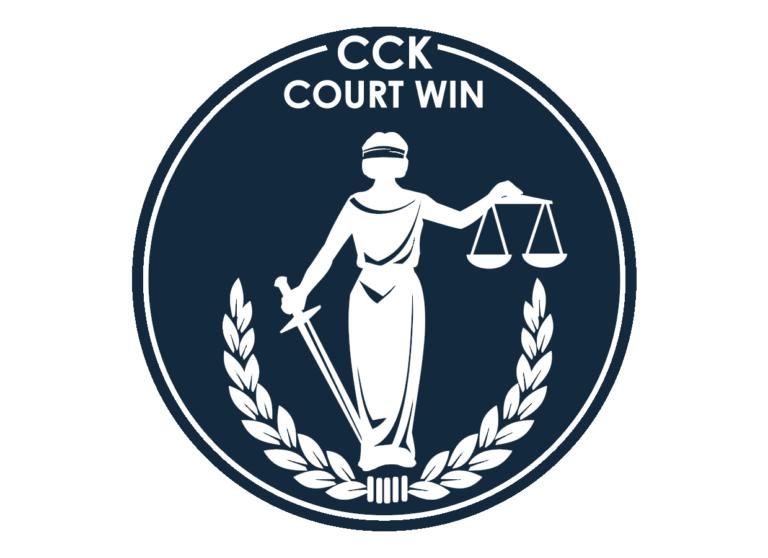Court Agrees with CCK: Board Erred in Denying Service Connection for Hypertension as Due to Herbicide Exposure

CCK Law: Our Vital Role in Veterans Law
Veteran seeks service connection for hypertension
The Veteran served on active duty in the United States Army from June 1967 to June 1969, with service in Vietnam. In January 1989, a private treatment record showed that he was diagnosed with hypertension two years prior. Nearly a decade later, the Veteran filed a claim for service connection for hypertension, which was denied in a July 2008 Rating Decision. He appealed this decision to the Board of Veterans’ Appeals, and a February 2013 Board decision continued to deny service connection for hypertension, to include as due to herbicide exposure or secondary to his service-connected diabetes mellitus. In November 2013, the Veteran appealed to the Court of Appeals for Veterans Claims (CAVC), and both parties filed a Joint Motion for Remand (JMR), asserting that the Board provided an inadequate statement of reasons or bases in its February 2013 decision. The Court granted the JMR in December 2013, thereby vacating the Board’s decision and remanding it back for readjudication.
In June 2014, the Board remanded the Veteran’s claim and requested the VA examiner opine whether it was at least as likely as not that his hypertension was secondary to his in-service exposure to herbicides. The VA examiner opined that it was not, stating that the Veteran did not develop hypertension until 17 years after exposure. This examiner rendered the same opinion in February 2015, reiterating that the Veteran’s hypertension was less likely than not incurred in or caused by his exposure. Specifically, if his in-service exposure was the cause, his hypertension would have presented earlier than 17 years after leaving service. In September 2015, the Board remanded the Veteran’s claim for an additional VA medical opinion. The Board explained that while the previous VA examiner’s rationale referenced a gap of time between the Veteran’s service and his development of hypertension, no information or explanation was provided as to why this gap of time supports the opinion that the Veteran’s hypertension was not caused by his presumed in-service herbicide exposure. Therefore, a new opinion was required.
Accordingly, the VA examiner provided addendum opinions in December 2015 and March 2016. Both times, the VA examiner stated that the Institute of Medicine’s (IOM) “Veterans and Agent Orange: Update 2012” indicated that hypertension is categorized as having limited or suggestive evidence of an association with herbicide exposure, but that a firm conclusion is not established. As a result, the examiner opined that there was no causal relationship between his hypertension and in-service exposure. Despite another Board remand in September 2016 for an additional VA medical opinion, the November 2016 examiner maintained the same conclusion and rationale that it was less likely than not the Veteran’s hypertension was due to his in-service exposure because there is no relationship between these two events.
Board denies service connection for hypertension as due to herbicide exposure
In August 2017, the Board issued a decision that denied service connection for the Veteran’s hypertension, to include as a result of exposure to herbicides or secondary to his service-connected diabetes mellitus. In its decision, the Board found that VA’s duty to assist had been satisfied and that the VA examinations and medical opinions, “as a whole,” were adequate. Furthermore, the Board discussed relevant portions of the VA examinations completed in June 2014, February 2015, December 2015, and March 2016, and determined that there was no probative evidence directly attributing the Veteran’s hypertension to his service, including to his presumed exposure to Agent Orange in Vietnam. Finally, the Board found that the competent and credible medical evidence of record did not support a finding that hypertension is related to herbicide exposure in general.
CCK argues against the Board’s decision
CCK successfully appealed to the CAVC the Board decision that denied service connection for the Veteran’s hypertension as due to herbicide exposure. CCK argued that the Board provided an inadequate statement of reasons and bases when it determined the competent and credible medical evidence did not support a finding that the Veteran’s hypertension was related to his service. CCK further asserted that it was unclear what evidence the Board referred to as it did not specify on which examinations it relied, and instead discussed numerous VA examinations that it had previously deemed inadequate during the course of its analysis. Here, the Board did not explain what evidence it found to be competent and credible because it previously deemed that same evidence inadequate in light of the multiple remands in this case.
Court agrees with CCK’s arguments and remands the Veteran’s claim for service connection for hypertension
CCK argued, and the Court agreed, that the Board provided an inadequate statement of reasons or bases for relying on the June 2014, February 2015, December 2015, and March 2016 VA medical opinions to deny the Veteran’s claim for service connection for hypertension on a direct basis. The Court noted though the Board may give “some weight” to an inadequate medical opinion, the Board relied on these opinions without explaining why they were now considered adequate. Furthermore, the Board did not discuss which portions of the VA medical opinions retained probative value or how the opinions otherwise complied with the Board’s prior remands. On remand, the Court instructed the Board to provide an adequate statement of reasons or bases for relying on VA medical opinions that were previously found to be inadequate. Additionally, the Court instructed the Board to carefully review the adequacy of the VA medical opinions and consider that, in November 2018, the IOM issued an update on “Veterans and Agent Orange” that moved hypertension from the limited or suggestive evidence category to the sufficient evidence of an association category.
About the Author
Share this Post
